
The UNESCO-UNEVOC International Centre: Who We Are | What We Do | Working With Us | Get in Touch
The UNEVOC Network: Learn About the Network | UNEVOC Network Directory
For Members: UNEVOC Centre Dashboard
Thematic Areas: Inclusion and Youth | Digital Transformation | Private Sector Engagement | SDGs and Greening TVET
Our Key Programmes & Projects: BILT: Bridging Innovation and Learning in TVET | Building TVET resilience | TVET Leadership Programme | WYSD: World Youth Skills Day
Past Activities: COVID-19 response | i-hubs project | TVET Global Forums | Virtual Conferences | YEM Knowledge Portal
Our Services & Resources: Publications | TVET Forum | TVET Country Profiles | TVETipedia Glossary | Innovative and Promising Practices | Toolkits for TVET Providers | Entrepreneurial Learning Guide
Events: Major TVET Events | UNEVOC Network News
May 2020
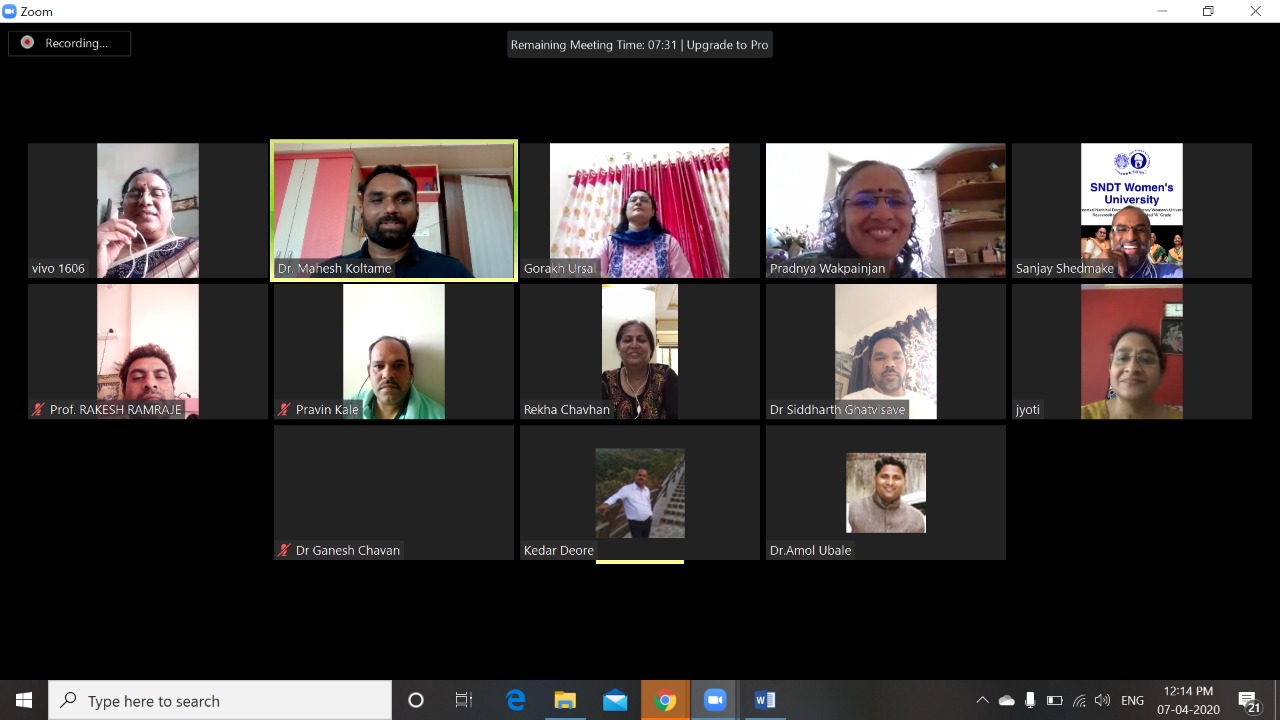
Implemented by: P.V.D.T. College of Education for Women![]() , SNDT Women's University, Mumbai, India
, SNDT Women's University, Mumbai, India
Resource language: English
In India, private schools and private coaching centres are facing problems due to a lack of quality school leaders. Traditional school management training courses and intake of these courses are limited and very restricted. The government has organized training only for government teachers and it is very costly. To equip all teachers with modern essential managerial skills, there is a need to design and develop high quality open educational resources (OER).
It is possible to facilitate the training of school principals and managers through a Massive Open Online Course (MOOC).The aim of this MOOC is to develop the skills and knowledge of school leadership and management among practicing principals, and teachers who want to become principals, as well as trainee teachers, and school or coaching centre managers.
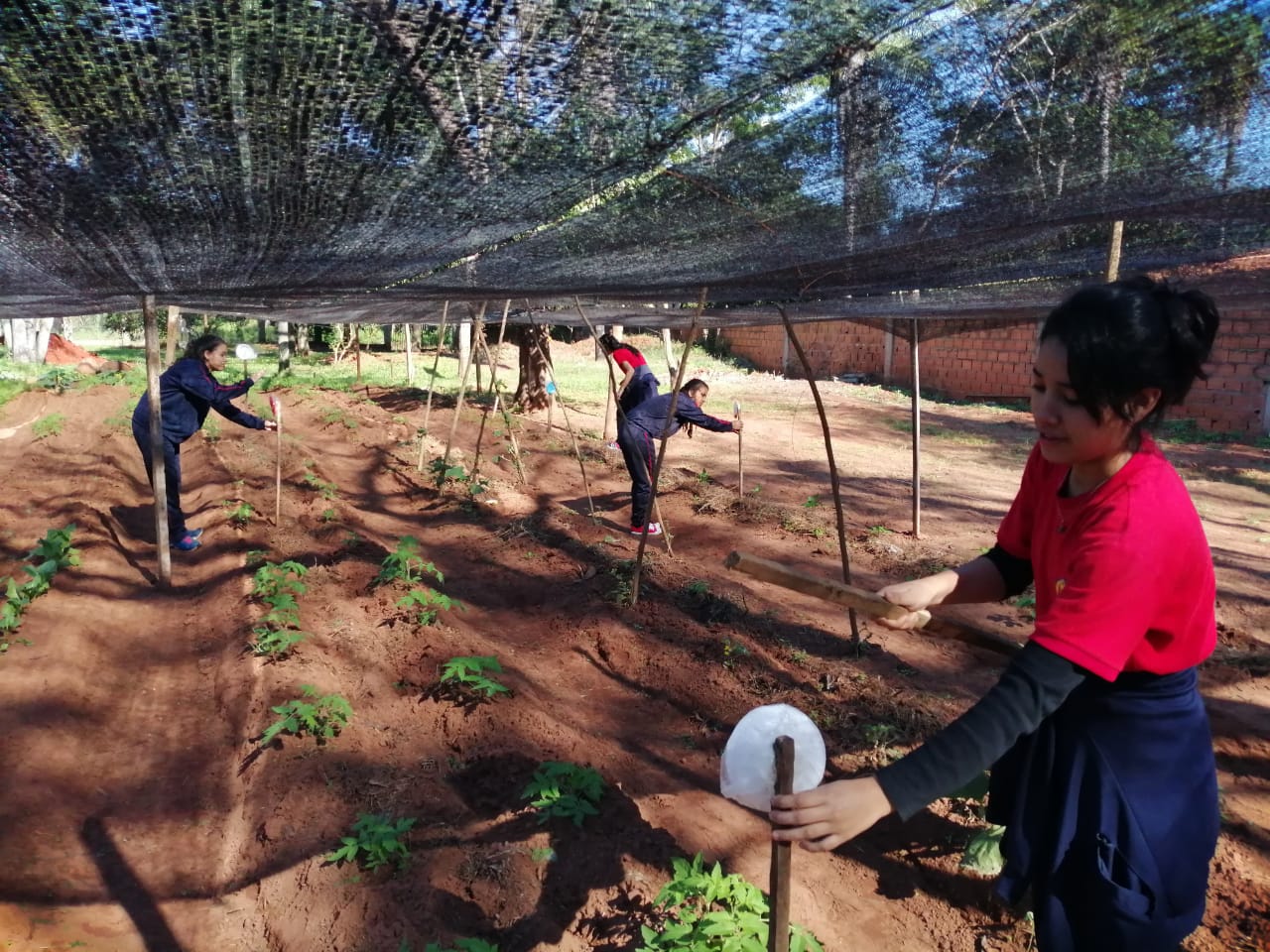
Implemented by: Fundación Paraguaya de Cooperación y Desarrollo![]() , Paraguay, UNEVOC Centre
, Paraguay, UNEVOC Centre
Resource languages: Spanish, Guarani, English
This project aims to develop a video-based, horticultural distance course. The course will support entrepreneurship, efficient financial management, and nutritional diets in women between 20 to 60 years old, promoting the use of existing available resources through the bio intensive system production of organic vegetables.
As a result, ten animated videos with audio and subtitles will be produced in three languages, the two national languages of Paraguay, Guaraní and Spanish, and English for international use. These animations will be accompanied with manuals to cover different types of learning. Technology is used here to improve the accessibility of the course for teachers and students in rural areas.
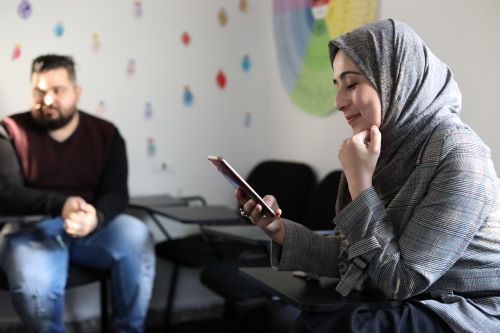
Implemented by: Kiron Open Higher Education![]() , Germany
, Germany
Resource languages: English, German, French and Arabic
Kiron Open Higher Education is a non-governmental organization (NGO) with a focus on providing learning opportunities to refugees in Germany and around the world. Refugees have often had to interrupt their learning pathway because of social emergencies. The students at Kiron tend to be around 30 years old, which means that they are unlikely to have received any prior digital training. Providing them with these skills is a significant route to empowering them to search for, obtain and be successful in the job market. At the same time, and in line with the principles of OER, the course will be open to other participants and it is expected that it will be of use to both young people in many communities at the start of their careers and to older people, who need ‘upskilling’ for their current or future careers.
The course to be developed builds on an existing programme, which is already offered by Kiron in collaboration with Lübeck University, and - as is increasingly the case with other courses provided by Kiron - is openly licenced (CC-BY). This programme has been shown to be popular, but it needs to be significantly updated. It is being updated so that it refers to current use cases, can be offered in multiple languages (English, German, French and Arabic) and is accessible and usable to the many users who will be accessing the course via a mobile phone (mostly Android).
The limitation, which this grant will be used to solve, is that Kiron uses its own learning management system (Kiron Campus). This means that even if the programme is openly licenced, its ‘technical openness’ for others is restricted. Kiron thus uses the grant in order to develop a common cartridge output format for the programme. This will make the course truly open.
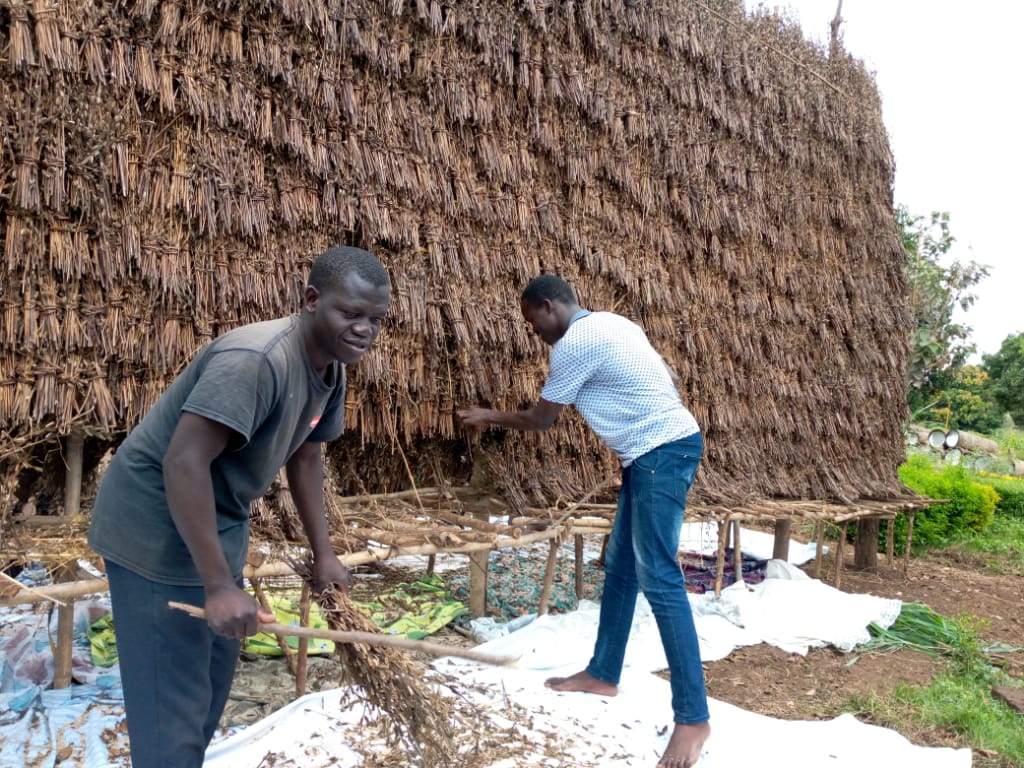
Implemented by: Masinde Muliro University of Science and Technology![]() (TVET accredited University), Kenya
(TVET accredited University), Kenya
Resource languages: Swahili, French and English
The goal of the project is to enhance food and nutritional security among the East African Community by applying green technologies in sustainable post-harvest loss management for agricultural products. The concept of this online module describes an integrated approach to dealing with post-harvest losses by bringing together all possible methods across the entire agricultural value chain that contribute to reduced levels of losses occurring during and post harvesting of grains, fruits, vegetables, oil seeds and all food crops, livestock and fisheries products.
The target audience includes horticultural farmers, agricultural extension officers, agricultural supply chain staff and personnel from academia, TVET instructors in agriculture and agricultural value chain management, government and non-governmental institutions, and private sector entities involved directly or indirectly in the horticultural post-harvest industry in six East African countries.
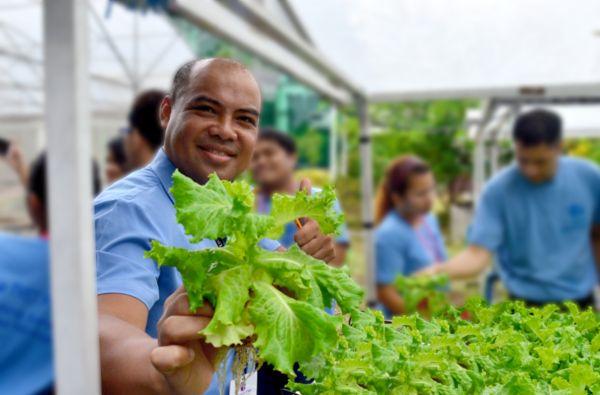
Implemented by: Technical Education and Skills Development Authority![]() (TESDA), Philippines, UNEVOC Centre
(TESDA), Philippines, UNEVOC Centre
Resource language: English
Recognizing the critical role of a strong agricultural sector and a skilled population in building national resilience, the eLearning TVET course on Aquaponics aims to promote urban farming and sustainable practices.
Through the provision of a massive open online course (MOOC) that can also be used as material for remote and flexible TVET programmes for agriculture, the project aims to increase the absorptive capacity of TVET in the country, enhance the quality of instruction to impact and reach a greater number of stakeholders in different areas/sectors, contribute to the “global pool of culturally diverse, locally relevant, gender-sensitive, accessible, educational materials in multiple languages and formats”, and showcase/promote TVET in the Philippines through the development of quality-assured and competency-based training courses and modules.
31 January 2020
Following two weeks of extensive discussions and a challenging selection process, the selection committee has chosen five projects.
The selection process was carried out in three stages. In the first step, all submissions were checked against the criteria of the call. Out of 239 submissions from 57 countries, 61 submissions met all criteria. In the second stage, each committee member thoroughly reviewed the first selection submissions, until further reducing the shortlist to 20. From the resulting shortlist of 20 excellent proposals, the 5 recipients were selected after deep and substantial discussion.
UNESCO-UNEVOC would sincerely like to thank all participants who submitted their proposals. The enormous amount of high-quality proposals highlights the many issues at stake in TVET across a very broad range. Furthermore, they indicate that there is an awareness of the significant role of Open Educational Resources in TVET as we work to achieve the Sustainable Development Goals.
As Robert Schuwer put it: "The outcome is so overwhelming that it must persuade funding organizations to invest more in Open TVET projects." Ben Janssen remarked: "The high level of quality is striking. It is very unfortunate that only 5 proposals could be selected."
The committee was composed of the following members:
13 January 2020
Thank you for an overwhelming response! We have received more than 230 submissions.
December 2019
Open Educational Resources (OER) - learning, teaching and research materials in any format and medium that reside in the public domain – and Open Educational Practices (OEP) around the creation, use, and management of OER to improve quality and innovate education are cornerstones of modern day education and training. The UNESCO–UNEVOC Global OER Grant Programme provides 5 grants of up to 5,000 USD to institutions that develop, adapt or curate such resources to promote open practices in Technical and Vocational Education and Training (TVET). Applications are invited through an open call for proposals as per the deadline below:
Deadline for proposals: 12 January 2020 (closed)
Grant recipient announcement date: 31 January 2020
Project rollout and implementation: between February and September 2020
The Recommendation Concerning Open Educational Resources![]() , adopted by the UNESCO General Conference in November 2019, puts forward the following expectation:
, adopted by the UNESCO General Conference in November 2019, puts forward the following expectation:
"In building inclusive Knowledge Societies, Open Educational Resources (OER) can support quality education that is equitable, inclusive, open and participatory as well as enhance academic freedom and professional autonomy of teachers by widening the scope of materials available for teaching and learning."
It defines as one objective "to develop a global pool of culturally diverse, locally relevant, gender-sensitive, accessible, educational materials in multiple languages and formats."
With our Global OER Grant Programme, we aim to promote OER and motivate the global TVET community to develop OER and related initiatives and practices. A study commissioned by UNESCO-UNEVOC in 2018 on the use of OER in TVET found that the OER concept was still widely unknown among TVET stakeholders. At the same time it was seen as highly promising for improving access to high-quality TVET. Our call for proposals is directed to institutions (e.g. TVET schools, training providers, teaching and learning centres, teacher training institutions, libraries, OER working groups, etc.).
The OER/OEP must concern a subject area linked to Technical and Vocational Education and Training. We explicitly welcome the development of resources not only for formal education streams, but also for informal settings. The grant may be used for, but is not limited to:
Although this call for proposals is only issued in English, we do encourage the creation of resources and open practices in other languages. However, we need to be able to assess it, so a summary of the output needs to be made available in English or French (translation can be paid from the grant).
The focus of the Grant is on the development of OER and OEP allowing users to freely retain, copy, modify, remix, and/or redistribute open content. Proposals containing the following will not be considered:
The Global OER programme is open for institutions only. Individuals with innovative ideas are welcome to partner with local institutions, as payments can only be made to institutions (including NGOs). Preferably, the implementation is carried out in cooperation or with support of a UNEVOC Centre. A selection committee comprising of Robert Schuwer (Fontys University, Netherlands), Ben Janssen and other international partners will evaluate proposals meeting the following criteria:
THE CALL FOR PROPOSALS IS CLOSED (deadline was 12 January 2020).
There are plenty of helpful resources on OER and OER development available online. Some key UNESCO and UNEVOC resources listed below provide good starting points.
If you have any further questions, please get in touch with us at mailto:oer.tvet@unesco.org.